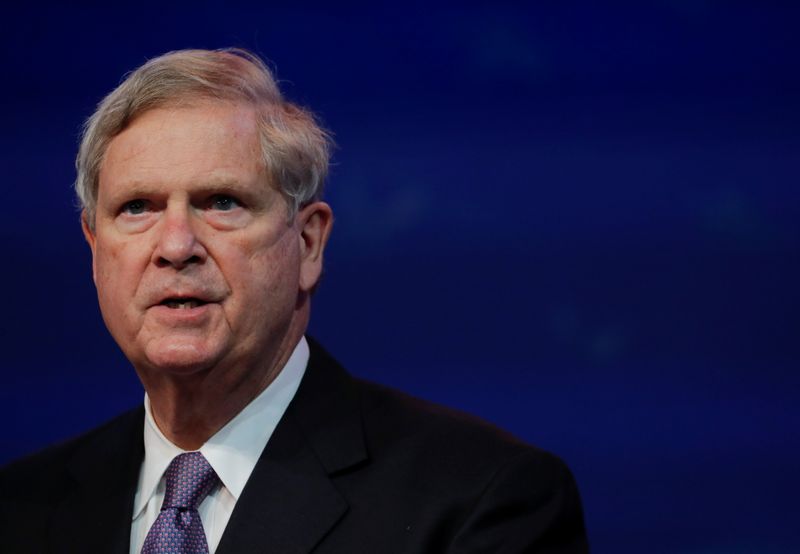By Christopher Walljasper
CHICAGO (Reuters) - President-elect Joe Biden has promised to address racial inequality in agriculture. But some Black farmers aren't so sure he picked the right man for the job after settling on former Iowa Governor Tom Vilsack for agriculture secretary.
Vilsack led the U.S. Department of Agriculture (USDA) under former President Barack Obama. His likely return to the post comes at a time of racial reckoning in the United States, and Black voters won't soon forget they helped deliver Biden's victory.
Biden's transition team has said Vilsack's prior experience as USDA chief offers a head start in addressing issues facing the new administration.
"With how many farmers are struggling, the president-elect has been prioritizing experienced leaders – people he knows can hit the ground on day one to get things done," said Sean Savett, spokesman for the Biden transition team.
But Black farmers, who have long viewed the department suspiciously, say Vilsack comes back to his old job carrying plenty of baggage.
"USDA has historically not demonstrated a commitment to racial justice, and we particularly see the track record of Vilsack in the past," said Dara Cooper, co-founder of the National Black Food and Justice Alliance.
"That’s what caused a great concern," said Cooper, whose organization focuses on equitable access to food and land for Black farmers and communities.
Cooper's group, as well as the National Black Farmers Association, say alleged discriminatory practices continued at the USDA while under Vilsack's leadership, including the denial of loans to Black farmers and a decrease in the percentage of dollars loaned to minority farmers.
Vilsack declined to comment but said during the announcement of his nomination Friday he was committed to "rooting out inequities and systemic racism in the systems we govern and the programs we lead."
Many groups representing Black farmers endorsed Biden, who has pledged to "close racial wealth gaps – including for rural Americans of color."
But John Boyd Jr., a farmer and president of the National Black Farmers Association, voiced surprise that Biden picked Vilsack for the USDA over someone like Ohio congresswoman Marcia Fudge, a vocal proponent of increased nutrition funding for black communities and addressing racial discrimination.
"In my one-on-one meeting with him (Biden), he committed that there would be change at USDA for Black farmers," Boyd said.
Fudge, who would have been the first Black woman to lead the agency, reached out to Boyd in late November to discuss issues critical to Black farmers, he said. Vilsack contacted him on Thursday, he added, after the announcement of his selection.
Biden's transition team has announced Fudge will run the Department of Housing and Urban Development.
Among other past issues, Vilsack forced Shirley Sherrod, a Black woman, to resign from her position as Georgia state director of rural development for the USDA in 2010, due to an edited tape of a speech that misconstrued Sherrod’s statements as prejudicial against white farmers.
Vilsack later apologized and offered Sherrod a new position, which she declined.
Vilsack's nomination follows Georgia lawmaker David Scott’s selection as the first African American to chair the House Agriculture Committee. Scott has pledged to back a proposal from U.S. Senators Cory Booker and Elizabeth Warren that would provide grants to Black farmers to purchase farmland and protect them from further losses.
Discriminatory lending practices, often at local USDA offices, denied Black farmers access to funds needed to operate, maintain and purchase farmland, leading to a loss of $120 billion in farmland value, according to a 2018 analysis by Melissa Gordon of Tufts University.

"We talk about the wrongs of the USDA as if it were in the past, but the reality is that they still continue, so there has to be some drastic overhaul," said Cooper.